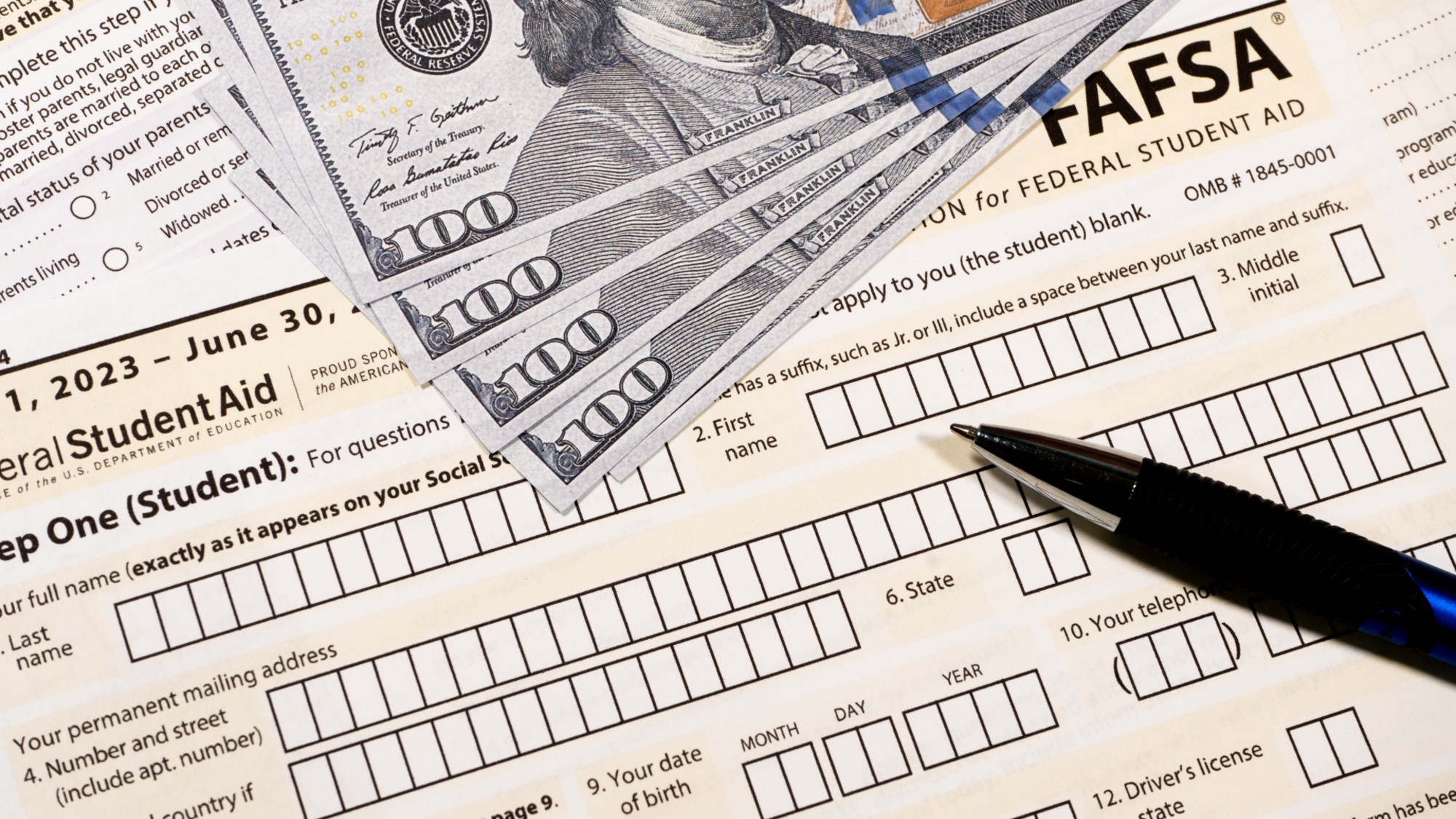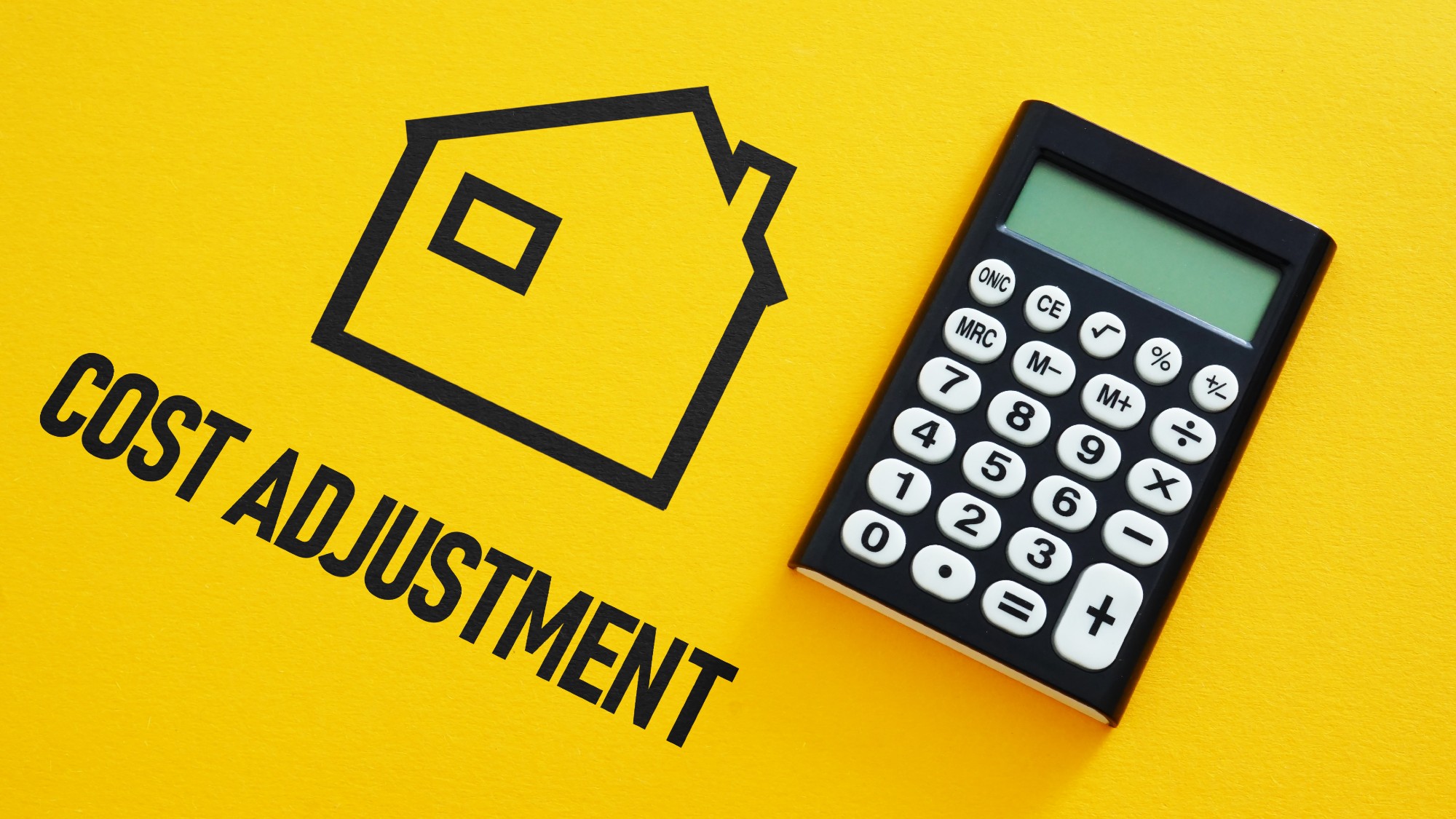The winter benefits available for struggling households
Support with bills is on offer as temperatures drop but there are important rule changes this year
Marc Shoffman, The Week UK

A free daily email with the biggest news stories of the day – and the best features from TheWeek.com
You are now subscribed
Your newsletter sign-up was successful
As the weather gets colder, it is likely energy prices will once again rise.
And, amid the continuing cost-of-living crisis, it is thought that some 1.5 million households "will not turn on their heating this winter", said The Guardian. That's a number that has "risen sharply" from the 972,000 who "took this drastic step" last year.
But millions of people – including those "struggling to heat their homes" – could be entitled to important support with bills and essential costs, according to the government website. It is important to check your eligibility for these winter benefits to make sure you are not missing out.
The Week
Escape your echo chamber. Get the facts behind the news, plus analysis from multiple perspectives.

Sign up for The Week's Free Newsletters
From our morning news briefing to a weekly Good News Newsletter, get the best of The Week delivered directly to your inbox.
From our morning news briefing to a weekly Good News Newsletter, get the best of The Week delivered directly to your inbox.
Cost-of-living support
The popular Energy Bill Support Scheme has long since expired but there is still help available with the cost of living for those in challenging circumstances.
In England, households may be eligible for payments of up to £500 under the Household Support Fund, with the amount varying "depending on where you live", said the Express. Extended in the recent Budget until March 2025, this Department for Work and Pensions scheme gives money to local councils who "then have the discretion to issue the funds as they see fit”. There is also funding for similar schemes in Scotland, Wales and Northern Ireland.
To find out what is available in your area – and how to apply – you will need to contact your local council.
Winter fuel payments
In previous years, all pensioners born before a certain date received a Winter Fuel Payment, worth between £250 and £600, but, controversially, the rules have been changed this year.
A free daily email with the biggest news stories of the day – and the best features from TheWeek.com
The payout will now be limited to those born before 23 September 1958 and in receipt of means-tested benefits, including Pension Credit, Universal Credit, income-based Jobseeker's Allowance, Income Support, and income-related Employment and Support Allowance.
Pensioners who are not eligible for these benefits "will stop receiving winter fuel payments from this winter onwards", said The Telegraph. An "estimated 1.5 million people" will be eligible for the payment this winter, "down from 11.4 million" when the payment was issued to all pensioners.
Those eligible should get the payments "automatically", said Age UK, but you may need to apply if you have never received the sum before, or if you are in receipt of benefits such as Child Tax Credit or Working Tax Credit.
The sum eligible pensioners get has not changed in "more than two decades", meaning a "less publicised" cut to the payment has been taking place since 2000, said Sky News. Inflation and energy prices, which have risen "exponentially in recent years", have eaten away at the value of the sum. If the winter fuel payment had risen in accordance with energy prices, "it would be worth almost £1,000 now", the broadcaster added.
Warm Home Discount Scheme
Low-income families may be eligible for £150 off their electricity bill under the Warm Home Discount Scheme.
You should be eligible if you get the Guarantee Credit portion of Pension Credit or if you are on certain benefits such as Universal Credit.
The aim of the scheme is to help "those who are vulnerable or may need help covering their energy bills" when they are most expensive, explained the comparison and switching service uSwitch.
The government "uses data to tell energy suppliers which customers to apply the discount to", so, if you are eligible, your supplier should automatically add this discount to your bill. This should happen by 31 March 2025.
Cold weather payments
Cold weather payments are made if "the average temperature in your area is recorded as, or forecast to be, zero degrees Celsius or below over seven consecutive days", said Gov.uk.
But "the catch", said Metro, is that the money is only paid to eligible groups.
Low-income households – including those on benefits such as Pension Credit or Universal Credit – receive £25 for each eligible seven-day period between 1 November 2024 and 31 March 2025.
The money is paid automatically into the account your other benefit payments are paid into, and will appear within 14 days of each eligible cold period.
Christmas bonus
Struggling households on benefits also get extra money during the festive season with the Christmas Bonus.
The £10 bonus, on top of normal benefit payments, is normally paid during the first week of December.
Critics complain that this figure has stayed the same since it was introduced in 1972. If the sum had kept pace with inflation over those 52 years, said The Independent, it would "be lifted to "£114.75".
Don't miss out
"Over 850,000 eligible pensioners" are missing out on Pension Credit, despite being entitled to it, said Policy in Practice. With recent changes to Winter Fuel Payments, eligible pensioners "will miss out on this support" if they do not submit a claim for Pension Credit before 21 December 2024.
This winter, the government is set to "write to 120,000 pensioners who might be eligible" to invite them to make a claim, said the BBC.
It is worth claiming Pension Credit, even if you are only entitled to a small amount. This is because it is considered a gateway benefit, opening those who are eligible up to a host of other payments. Pension Credit recipients also receive free NHS dental treatment, help with rent or council tax, and over 75s can also get a free TV licence.
Rebekah Evans joined The Week as newsletter editor in 2023 and has written on subjects ranging from Ukraine and Afghanistan to fast fashion and "brotox". She started her career at Reach plc, where she cut her teeth on news, before pivoting into personal finance at the height of the pandemic and cost-of-living crisis. Social affairs is another of her passions, and she has interviewed people from across the world and from all walks of life. Rebekah completed an NCTJ with the Press Association and has written for publications including The Guardian, The Week magazine, the Press Association and local newspapers.
-
 Switzerland could vote to cap its population
Switzerland could vote to cap its populationUnder the Radar Swiss People’s Party proposes referendum on radical anti-immigration measure to limit residents to 10 million
-
 Political cartoons for February 15
Political cartoons for February 15Cartoons Sunday's political cartoons include political ventriloquism, Europe in the middle, and more
-
 The broken water companies failing England and Wales
The broken water companies failing England and WalesExplainer With rising bills, deteriorating river health and a lack of investment, regulators face an uphill battle to stabilise the industry
-
 Six ways to boost your finances in 2026
Six ways to boost your finances in 2026The Explainer It’s not too late to make a new year’s resolution to finally get organised money-wise
-
 How your household budget could look in 2026
How your household budget could look in 2026The Explainer The government is trying to balance the nation’s books but energy bills and the cost of food could impact your finances
-
 What are Pell Grants and who do they benefit?
What are Pell Grants and who do they benefit?The Explainer These are grants, not loans — meaning students do not have to repay the funds, but they must first meet certain conditions
-
 What to know about the latest Social Security cost-of-living adjustment
What to know about the latest Social Security cost-of-living adjustmentThe Explainer A slightly more substantial increase for 2026, though not by much
-
 The financial changes to expect in 'Awful April'
The financial changes to expect in 'Awful April'The Explainer As the new financial year begins, it brings changes for bills, wages and tax
-
 How to earn extra cash for Christmas
How to earn extra cash for ChristmasThe Explainer The holiday season can be expensive but there are ways to bolster your festive finances
-
 Energy prices set to rise in October – how to reduce your gas and electricity bill
Energy prices set to rise in October – how to reduce your gas and electricity billThe Explainer With the price cap expected to rise before this winter, what is the best way to prepare, and lower costs?
-
 What is dynamic pricing, and how will its increasing adoption affect your wallet?
What is dynamic pricing, and how will its increasing adoption affect your wallet?Speed Read The practice of adjusting prices based on demand is becoming more common